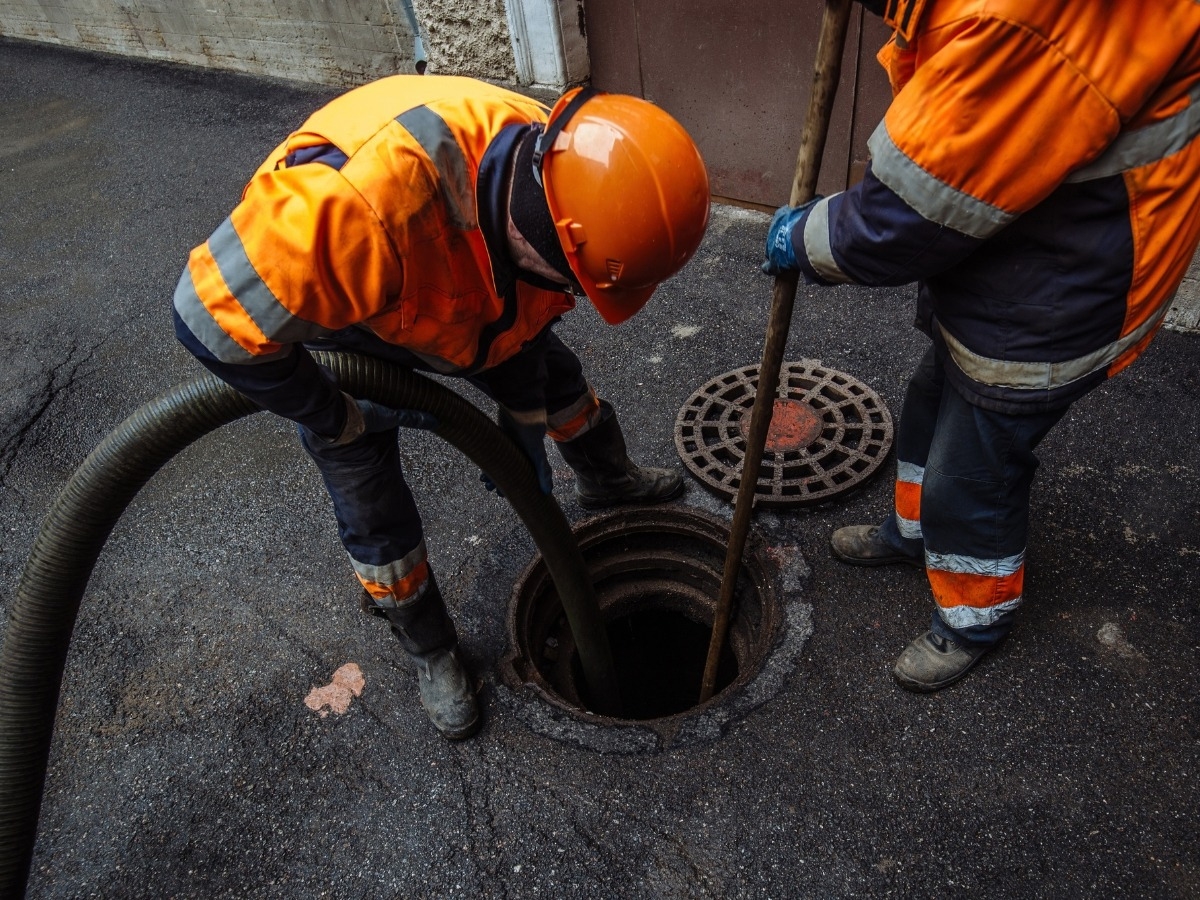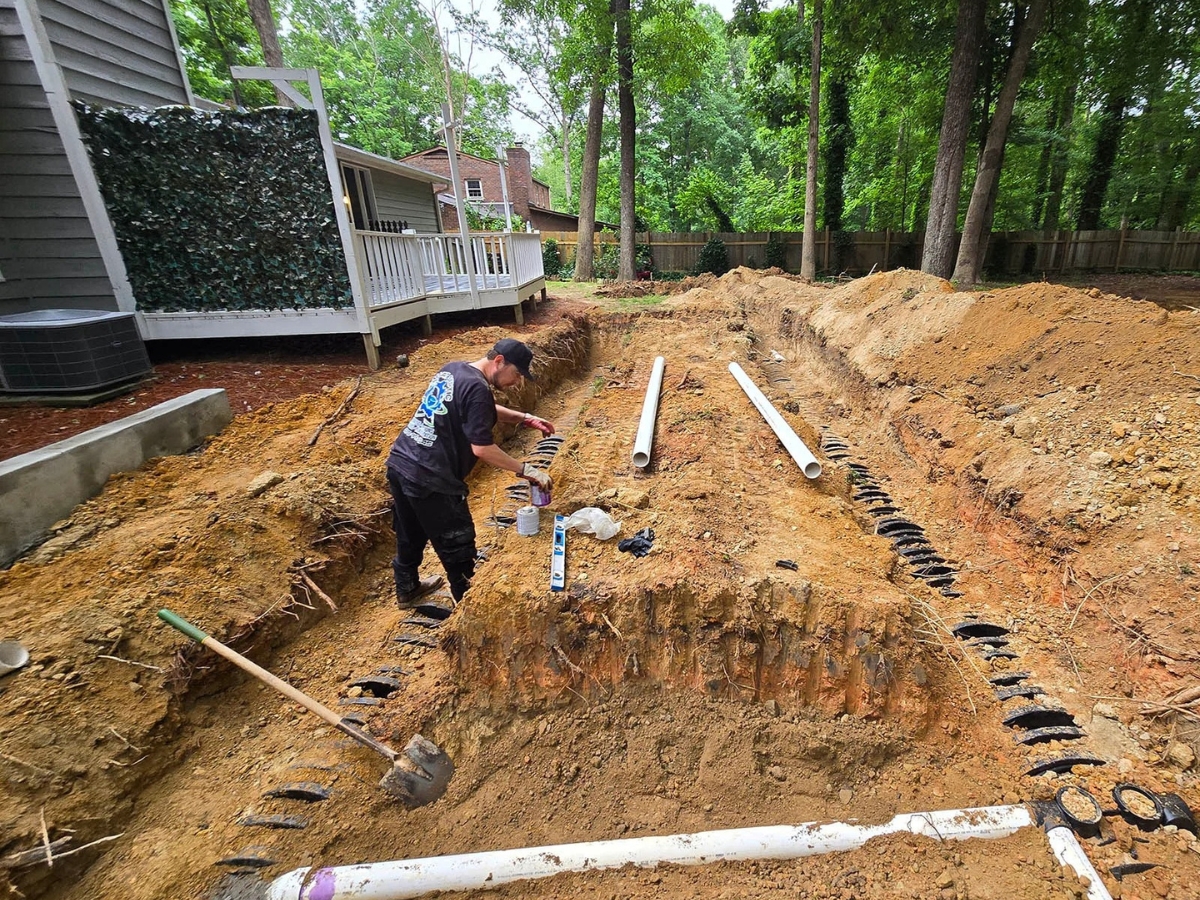Managing a commercial property comes with various responsibilities, and maintaining an efficient septic system is key to that management. We understand that optimal scheduling for commercial septic tank pumping isn’t just about keeping things running; it’s about preventing costly septic tank repairs and ensuring the longevity of your septic drain fields.
Whether you need commercial septic installation or routine maintenance, we’re ready to assist you. Regularly scheduled pumpings can save businesses time and money while avoiding messy emergencies.
If you’re unsure about your septic system’s status or how often you should pump your tank, you’re in the right place. Keep reading to uncover valuable insights that can help you maintain your commercial septic system effectively!
Commercial Septic Tank Pumping: The Key to Preventing Costly Backups
Determining the Right Frequency for Commercial Septic Pumping
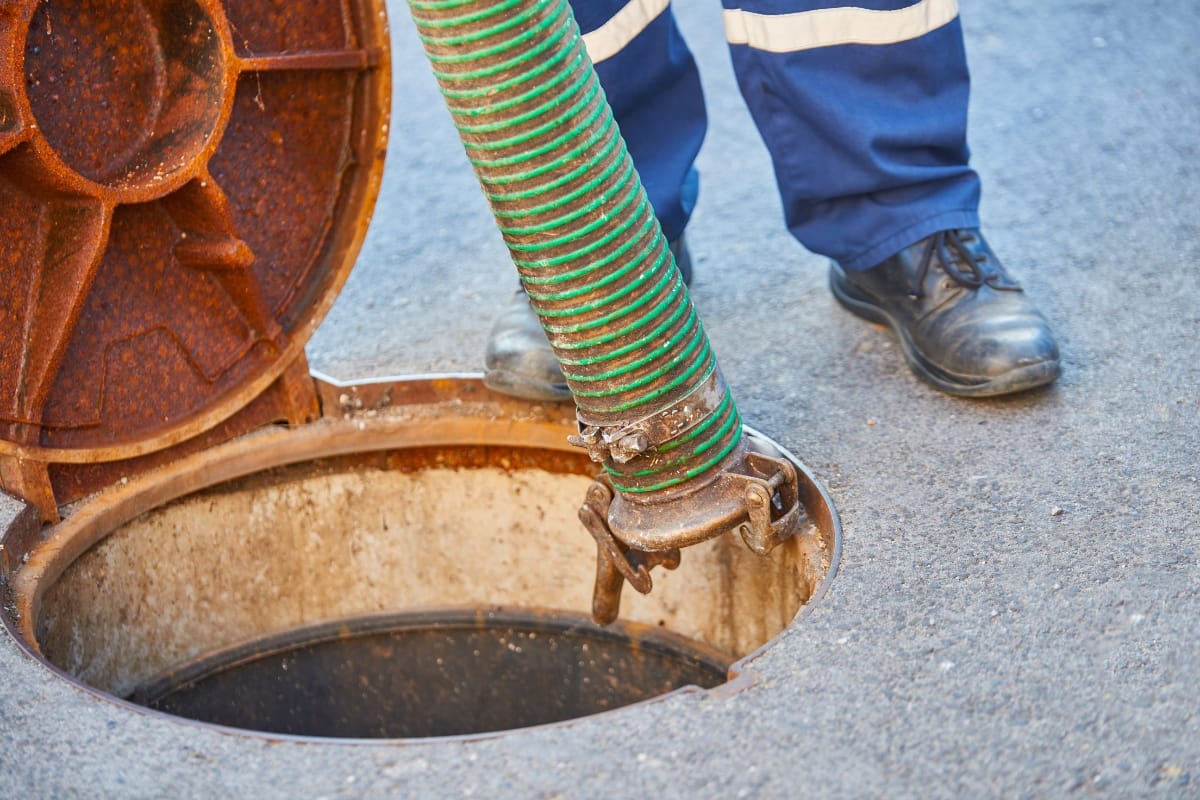
Finding the right frequency for commercial septic pumping isn’t a one-size-fits-all situation. Businesses must start by assessing their usage level to determine how solid waste and wastewater flow through their systems.
Understanding the capacity of the septic tank, septic tank installation plays a vital role in this process, as a tank that’s too small will fill up faster. Local regulations may also dictate specific pumping schedules, and knowing these rules helps in staying compliant.
Collaborating with a trusted septic service can provide personalized advice tailored to the property’s unique needs, ensuring the soil conditions are optimal for system performance. By considering these aspects, businesses can effectively manage their septic systems.
Assessing Your Business’s Usage Level
To effectively assess a business’s usage level, it’s important to pay close attention to how often waste is generated. Factors like customer traffic and daily operations can greatly affect the flow of wastewater, which can lead to a potential flood in the septic system if not monitored.
Understanding the Capacity of Your Septic Tank
Understanding the capacity of a septic tank is crucial for proper waste management and maintaining business profit.
A tank that’s too small can lead to clogs in the pipes, creating costly issues and requiring septic tank repairs. Keeping a regular schedule for having the septic tank pumped ensures that waste is properly recycled, minimizing environmental impact while protecting the system’s efficiency.
Checking for Local Regulations on Septic Pumping
Local regulations for septic pumping can vary widely, and it’s essential for businesses to stay informed. These rules often outline the frequency of having septic tanks pumped, which is crucial for maintaining a healthy septic drain field and preventing the buildup of oils and fats that can cause blockages.
| Regulation Type | Description | Importance |
|---|---|---|
| Pumping Frequency | Guidelines on how often septic tanks should be pumped based on usage | Prevents overflow and damage to the septic drain field |
| Waste Disposal Standards | Rules for properly disposing of oil and fat waste | Aids in maintaining system efficiency and environmental safety |
| Inspection Requirements | Scheduled inspections for septic tanks and systems | Ensures everything is functioning correctly and complies with local laws |
Collaborating With a Septic Service for Personalized Advice
Collaborating with a professional septic service company can make a significant difference when determining how often to pump a septic tank.
Experts in septic cleaning understand the specific needs of a business, including the nuances of grease traps, septic tank repairs, and can provide insightful recommendations. This tailored approach helps ensure that the system operates smoothly while avoiding unpleasant surprises.
Choosing the right septic service is essential for maintaining healthy operations:
| Service Aspect | Description | Benefits |
|---|---|---|
| Expert Consultation | Professional advice on pump frequency and tank maintenance | Increases system efficiency and effectiveness |
| Regular Maintenance | Scheduled septic cleaning and inspections | Prevents future issues and costly repairs |
| Customized Solutions | Specific plans based on business usage and system type | Ensures optimal performance tailored to needs |
Knowing how often to pump your commercial septic tank is just the first step. Next, let’s look at the signs that show when it’s time for a pumping to keep your system running smoothly!
Signs That Indicate Your Commercial Septic Tank Needs Pumping
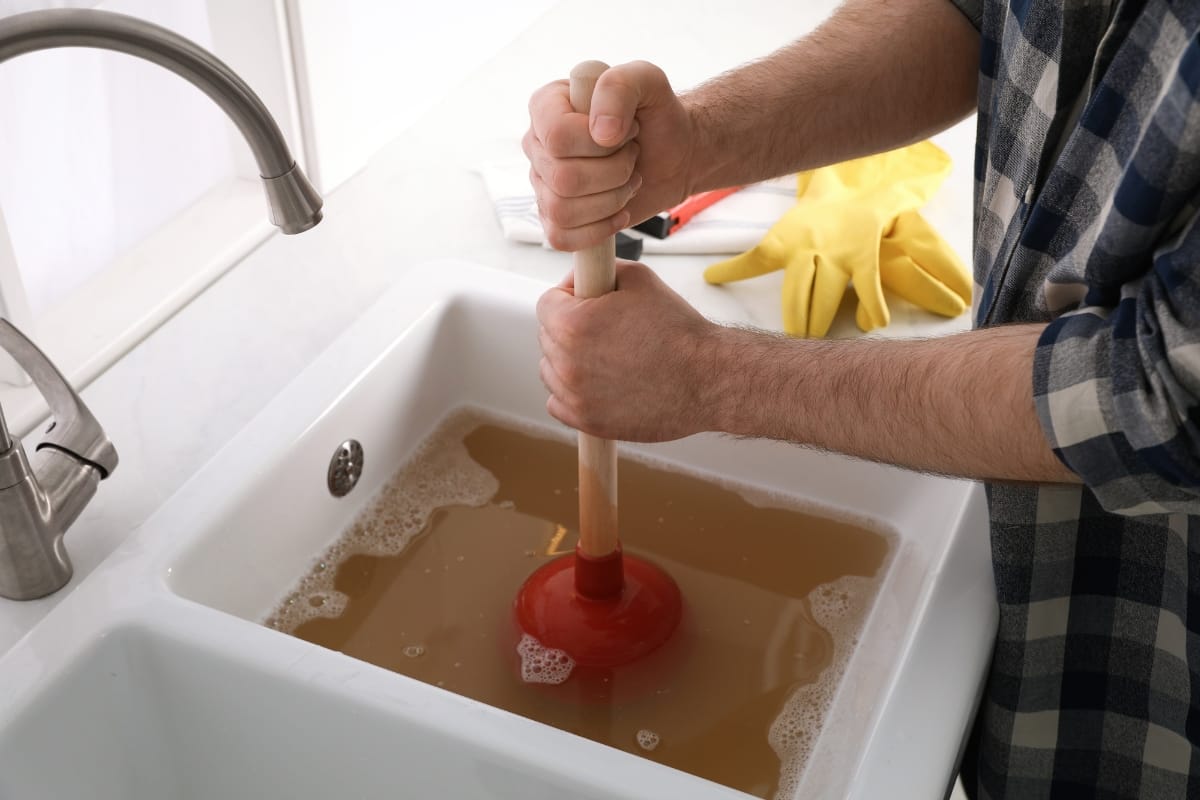
Commercial property owners need to stay vigilant for signs that indicate a septic tank requires pumping. One common red flag is slow drains throughout the business, which may suggest that waste is accumulating and obstructing flow.
Unpleasant odors near the septic tank area can signal a buildup of sewage sludge, creating an unhealthy environment for both employees and customers. Additionally, water pooling around the drainfield could mean the system is struggling to handle the influx of wastewater, leading to potential failures.
Lastly, sewage backup in commercial facilities is a serious issue that demands immediate attention. Regular grease trap pumping is crucial in ensuring your septic system’s longevity, especially in bustling locales.
Being aware of these warning signs can help property owners take proactive steps, saving them from costly repairs and keeping their operations running smoothly, all while ensuring they meet local license requirements in their zip code.
Slow Drains Throughout Your Business
Slow drains throughout a commercial space often serve as a warning sign that the septic tank needs attention. Accumulating sludge can hinder the flow of effluent, creating backups and unpleasant circumstances for employees and customers alike.
It’s essential to address these issues quickly, as maintaining bacteria balance in the system is crucial for effective waste breakdown and the overall health of the septic setup, ensuring smooth operations and optimal employment conditions.
Unpleasant Odors Near the Septic Tank Area
Unpleasant odors near the septic tank can be a strong indicator that something isn’t right with a commercial property’s waste management system.
For retail businesses, these offensive smells not only create an uncomfortable environment but can also drive customers away. Regular commercial septic tank pumping helps manage waste effectively, preventing issues that lead to bad drainage and foul odors around the area.
Water Pooling Around the Drainfield
Water pooling around the drainfield is a clear indication that a commercial septic tank may need prompt attention. This situation can not only create unsightly conditions for customers but can also pose liability issues for business owners if the problem worsens.
Proper drain cleaning and timely maintenance, including grease trap repair, are essential in adhering to local regulations and ensuring the longevity of the septic system.
Sewage Backup in Commercial Facilities
Sewage backup in commercial facilities is a serious issue that can disrupt daily operations and lead to sanitation problems.
Businesses engaged in construction or those with a strong marketing strategy should pay close attention to their wastewater treatment systems, as any blockage can result in costly downtime. Using techniques like hydro jetting to clear out obstructions can help restore proper function and prevent future backups, ensuring a smooth flow of operations.
Once you’ve identified the signs that your commercial septic tank is due for a pump, it’s time to take action. Learning how to schedule this essential service can keep your system running smoothly and prevent costly disruptions.
Scheduling Commercial Septic Pumping: Best Practices
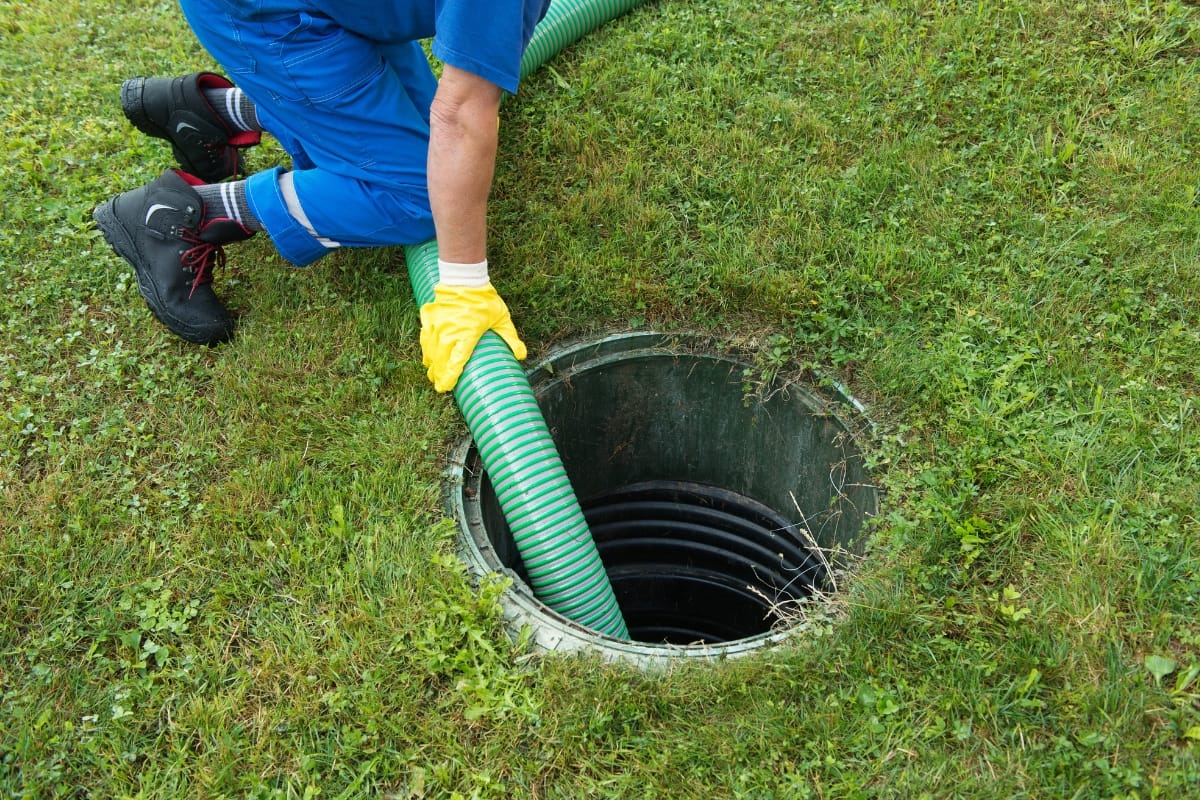
To ensure the smooth operation of a commercial septic system, scheduling pumping effectively is key. When it’s time to proceed, businesses can easily request service, ensuring timely attention from the septic professional’s vehicle.
Coordinating With Septic Services During Off-Peak Hours
Coordinating with commercial septic services during off-peak hours is a smart move for businesses aiming to minimize disruptions. By scheduling septic tank pumping at times when customer traffic is low, companies can ensure their operations run smoothly while maintaining high-quality customer service.
This approach not only keeps the business functioning efficiently but also prevents inconveniences that could arise from unexpected downtime.
Implementing a Recurring Scheduling System
Implementing a recurring scheduling system for commercial septic tank pumping allows businesses to stay ahead of potential issues.
This proactive approach ensures that the septic system receives consistent care, reducing the risk of unexpected breakdowns. Regular cleaning and pumping service intervals enable businesses to maintain optimal function, allowing them to focus on their operations without worrying about septic problems.
Maintaining Flexibility for Emergency Pumping Needs
Businesses must always be prepared for unexpected situations that may require immediate septic pumping.
Keeping a flexible schedule allows for quick responses to emergencies, ensuring that waste management issues are addressed promptly. This proactive stance minimizes disruptions and helps maintain a smooth operation, even when the unexpected occurs.
Documenting Each Pump Out for Future Reference
Keeping a detailed record of each septic pump-out helps commercial property owners stay organized and informed about their system’s health.
This documentation can provide valuable insights into usage trends and any emerging issues, allowing for smarter decision-making when it comes to maintenance schedules. Tracking this information empowers businesses to plan better and address potential problems before they escalate.
- Record the date of each pump-out.
- Note the volume pumped from the tank.
- Log any observations made by the technician during service.
- Schedule the next pump-out based on this information.
Regular maintenance can prevent headaches and costly repairs down the line. Let’s explore the benefits of keeping your septic system in top shape instead of waiting for an emergency.
Benefits of Regular Maintenance Over Emergency Pumping
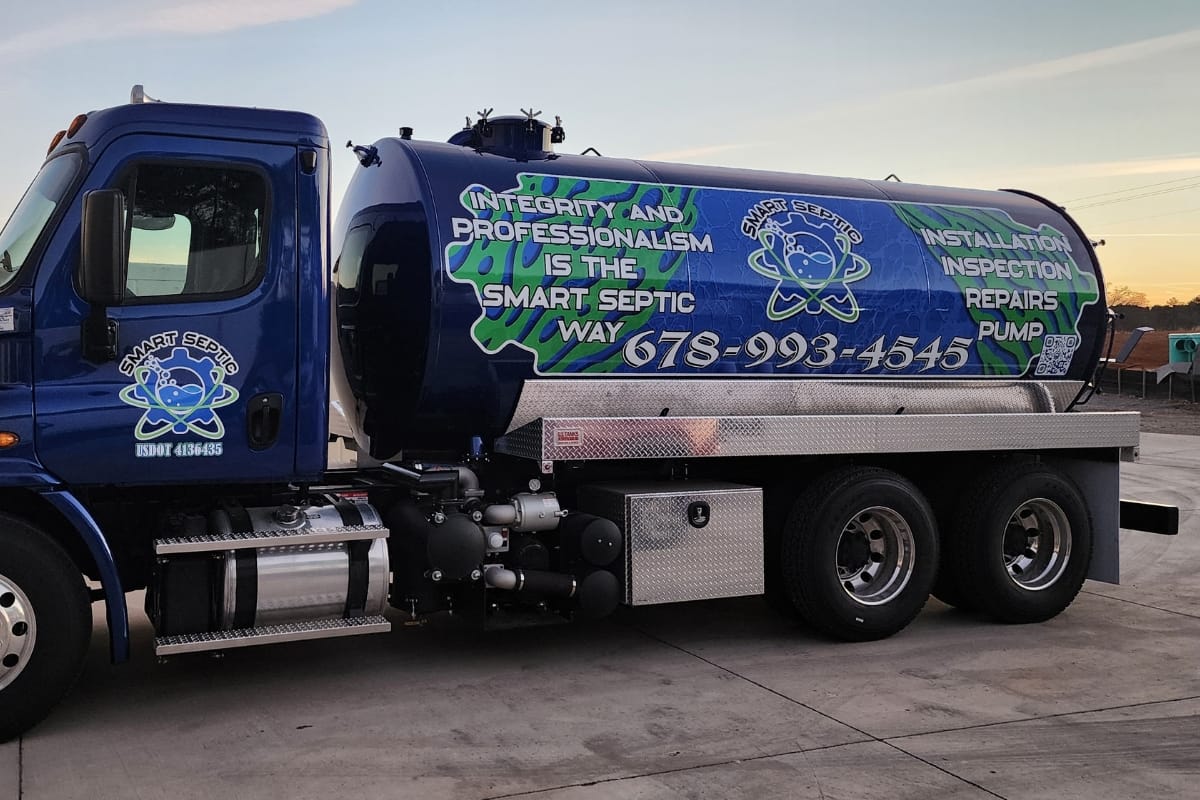
Regular maintenance of commercial septic systems presents multiple advantages that elevate a business’s operational efficiency. Each of these factors contributes to a well-functioning septic setup that supports business performance and sustainability.
Preventing Disruptions in Business Operations
Regular septic tank maintenance keeps businesses running smoothly by minimizing unexpected disruptions.
Scheduling routine pump-outs helps ensure that the system operates efficiently, preventing slow drains or backups that can interrupt daily activities. By taking a proactive approach to maintenance, companies avoid costly shutdowns and maintain a positive experience for both employees and customers.
Reducing Overall Maintenance Costs
Regular maintenance of a commercial septic system significantly cuts down on overall costs by preventing major issues before they arise. By scheduling consistent pump-outs, businesses avoid the hefty expenses associated with emergency repairs and extensive system overhauls.
Extending the Life of Your Commercial Septic System
Regular maintenance plays a crucial role in extending the life of a commercial septic system. Businesses can prevent the wear and tear that often leads to costly system failures. This approach not only enhances the reliability of the system but also maximizes the overall lifespan, saving money in the long run:
| Maintenance Activity | Benefits | Effects on System Lifespan |
|---|---|---|
| Regular Pumping | Prevents sludge buildup | Reduces wear on components |
| Scheduled Inspections | Identifies issues early | Avoids major breakdowns |
| Consistent Usage Monitoring | Ensures effective waste management | Helps maintain system health |
Overall, strong maintenance practices foster a resilient septic system, allowing businesses to focus on their operations without the constant worry of unexpected issues.
Ensuring Compliance With Health and Safety Regulations
Regular maintenance of a commercial septic system helps ensure compliance with health and safety regulations, which can vary by location.
Commercial businesses demonstrate their commitment to following the rules and protecting public health through the maintenance of their septic system. Staying in compliance not only avoids penalties but also fosters trust among customers and employees, leading to a better overall reputation.
Regular maintenance not only saves money but also ensures peace of mind. Now, let’s dive into the essential steps to take between commercial septic pumpings to keep your system running smoothly!
Steps to Take Between Commercial Septic Pumpings

Between commercial septic pumpings, businesses can take several proactive steps to maintain system functionality and avoid costly repairs.
Implementing Efficient Water Use Practices
Implementing efficient water use practices can make a significant difference in the performance of a commercial septic system. Businesses can adopt measures like fixing leaks promptly, using water-saving fixtures, and scheduling heavy water-use activities during off-peak hours.
These simple yet effective changes not only ease the load on the septic tank but can also lead to cost savings and better overall system health.
Avoiding Disposal of Non-Biodegradable Materials
Businesses need to be mindful of what goes down their drains, especially when it comes to non-biodegradable materials.
Disposing of items like plastics, wipes, or grease can cause significant clogs and blockages in the septic system, leading to costly repairs and disruptions. Encouraging good disposal habits among staff can promote a healthier septic environment and contribute to the longevity of the system.
Regularly Inspecting for Signs of Septic Failure
Regularly inspecting for signs of septic failure is essential for any commercial property owner. This proactive step can uncover issues such as leaks, strange odors, or pooling water around the tank. Identifying these warning signs early on helps prevent costly repairs and ensures smooth operation.
To maintain optimal septic system functionality, business owners should implement a routine inspection schedule and look for these signs:
- Unpleasant odors in the vicinity of the septic tank.
- Water pooling in unexpected areas.
- Slow drainage in sinks, toilets, and floor drains.
- Visible leaks or structural damage around the septic tank.
Educating Staff on Proper Septic Care
Educating staff about proper septic care can play a significant role in maintaining an efficient commercial septic system. Providing training on what materials to avoid flushing and the importance of conserving water helps foster a culture of responsibility, ensuring everyone contributes to the system’s health.
Regular workshops or informational sessions can keep septic care practices fresh in employees’ minds, leading to better practices across the board:
| Education Topic | Description | Benefits |
|---|---|---|
| Proper Disposal Practices | Training on what can and cannot be flushed down toilets and drains | Reduces risk of clogs and pump-outs |
| Water Conservation | Encouragement to fix leaks and use water-saving fixtures | Minimizes strain on the septic system |
| Signs of Trouble | Identifying early signs of septic issues | Allows for timely intervention, preventing major problems |
Understanding the importance of timely commercial septic pumpings sets the stage for making informed decisions. Now, let’s explore how to choose the right septic service that meets your commercial needs effectively.
Choosing the Right Septic Service for Your Commercial Needs
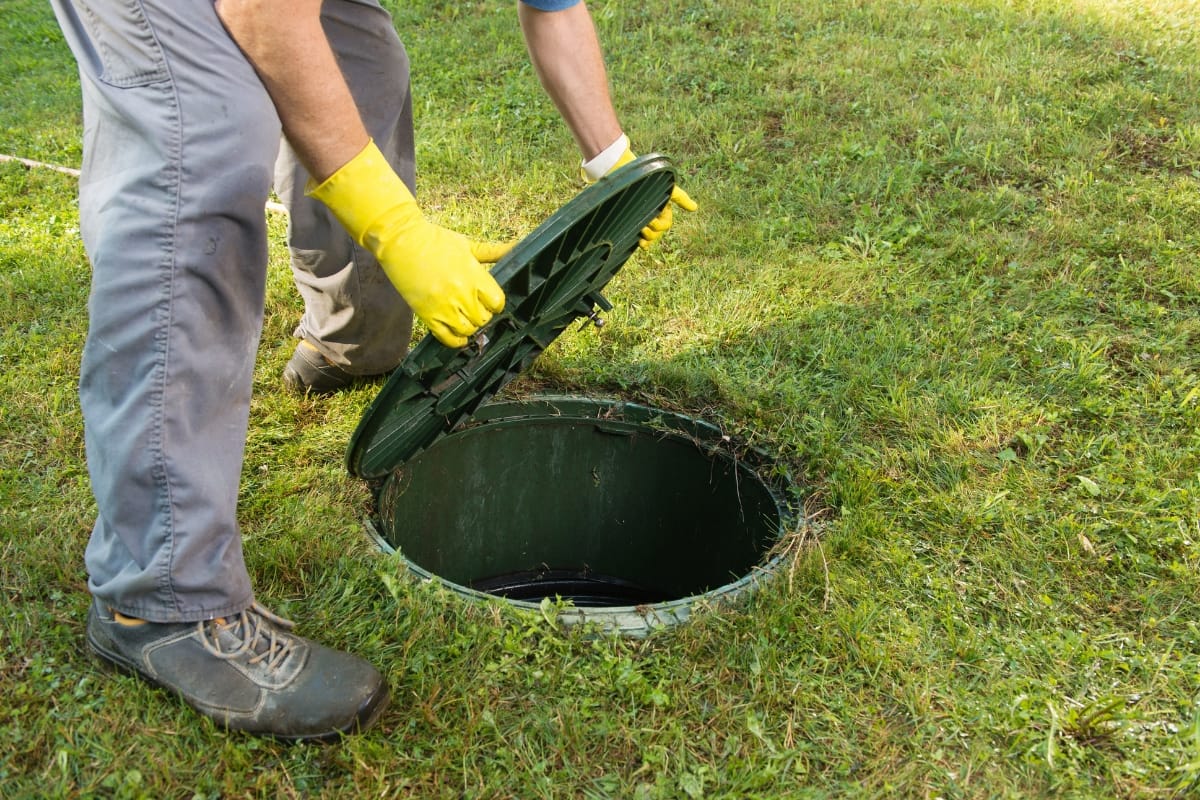
Finding the right septic service provider is crucial for smooth operations and peace of mind. First up, businesses should prioritize researching experienced and licensed companies, as this ensures compliance with local regulations and standards.
Next, considering the range of services offered can save time and hassle, allowing for a comprehensive approach to septic maintenance. Evaluating customer reviews and testimonials provides insight into the quality of service and reliability.
Finally, discussing maintenance plans and service agreements helps set clear expectations and ensures that septic needs are met regularly. This careful selection process leads to a well-maintained septic system that supports a business’s ongoing success.
Researching Experienced and Licensed Providers
Researching experienced and licensed providers is vital for ensuring that a business’s septic needs are addressed properly.
Companies should verify the credentials of potential septic service providers to confirm their compliance with state regulations and industry standards. This due diligence helps ensure that businesses receive quality service and minimizes the risks of future issues.
Finding the right provider requires a focused approach that includes evaluating qualifications, licenses, and feedback from past clients:
- Check for proper licensing and certification.
- Review customer testimonials and ratings.
- Inquire about their experience with similar commercial systems.
Considering the Range of Services Offered
When evaluating a septic service provider, businesses should consider the variety of services offered beyond just routine pumping.
A comprehensive approach may include grease trap maintenance, emergency repairs, and regular inspections, all of which contribute to the long-term health of the septic system. By selecting a provider that covers these bases, commercial property owners can ensure their operations run smoothly without unexpected disruptions.
Evaluating Customer Reviews and Testimonials
Evaluating customer reviews and testimonials is a smart way for businesses to find the right septic service provider.
By reading about others’ experiences, companies can gauge the reliability and quality of service offered, which is crucial in ensuring their septic systems are well-maintained. Positive feedback often highlights prompt responses and effective solutions, giving potential clients confidence in their choice.
Discussing Maintenance Plans and Service Agreements
Discussing maintenance plans and service agreements is key for businesses looking to ensure their septic systems operate without a hitch.
These arrangements offer clarity on services included, tank pumping frequency, regularity of maintenance, and any additional fees, making it easier for business owners to plan ahead. Establishing a good dialogue with a septic service provider can help tailor a maintenance plan that fits specific operational needs and budget constraints.
| Plan Type | Description | Benefits |
|---|---|---|
| Regular Maintenance Plan | Includes scheduled pump-outs and routine inspections | Ensures optimal function and prevents major issues |
| Emergency Service Agreement | Prioritized response for urgent septic issues | Minimizes downtime and protects business operations |
| Custom Service Packages | Tailored plans based on unique business needs | Provides flexible options for various requirements |
Conclusion
Regular, well-timed septic tank pumping is essential to maintaining a clean and efficient commercial property. With Smart Septic Pros, you can ensure that your septic system stays in peak condition, minimizing disruptions and prolonging system life.
Our team of experts can help create a customized pumping schedule that aligns with your business’s needs, ensuring seamless, reliable service. Don’t wait for issues to arise—call us today at 678-993-4545 or schedule a septic service through our site form and keep your commercial septic system running smoothly.


